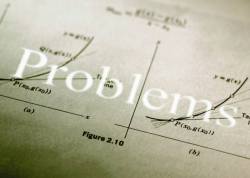The Definition of a Problem
November 29, 2011 1 Comment

In one of our previous posts, Identifying Causes of Organisational Problems, we spoke about the layered questioning process that helps in solving problems of all sorts – the cause and effect chain.
One more trick that helps enormously in problem solving, and indeed in many other areas of organisational life, is to spend some time defining the problem. So often we assume that we have a problem clear in our mind, and that there is a shared understanding of the problem amongst the team. However when we try to articulate the problem, all too often the areas that lack clarity or shared understanding are exposed. It is in the act of defining the issue that the end goal becomes clear.
Use this technique in other areas as well to bring clarity. For example, always define carefully the Read more of this post

 I came across these definitions of problem recently, and I loved them so much they brought a smile to my face. The definitions are succinct and accurate, and also are worthy of some contemplation.
I came across these definitions of problem recently, and I loved them so much they brought a smile to my face. The definitions are succinct and accurate, and also are worthy of some contemplation.






